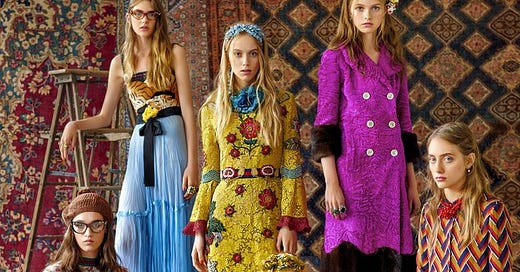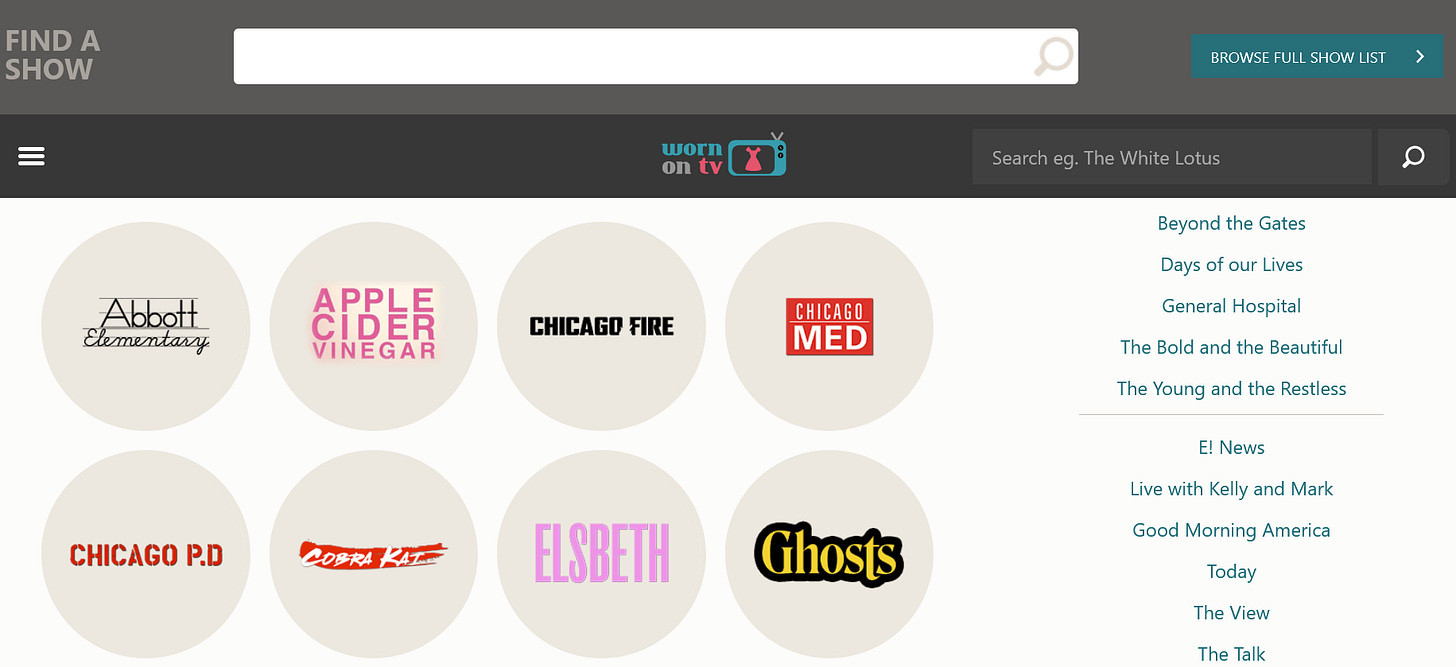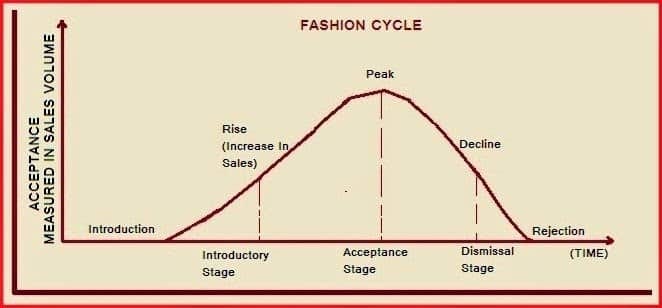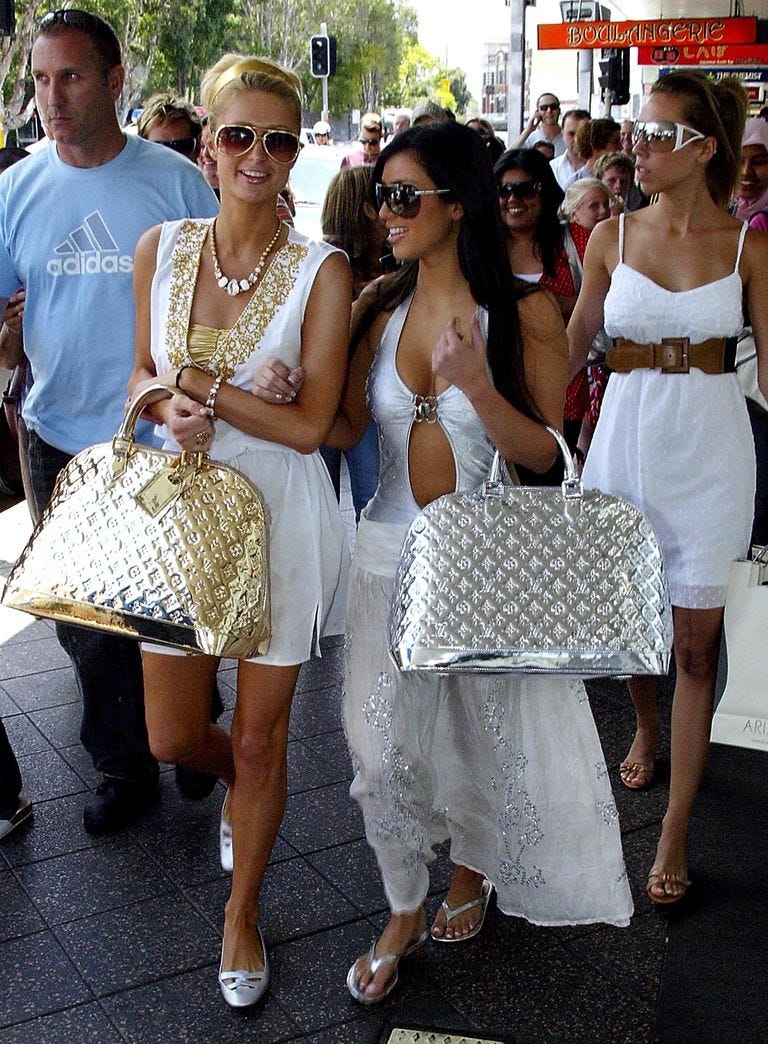How TV Shapes Luxury Fashion's Next Wave
Succession defined an era of conformist power dressing. Through its costume design, the show crystallized "stealth wealth" – the art of wearing $3000 cashmere sweaters that look like they could cost $300. No logos. No flash. Just well-fitted and tailored garments translated the absence of logos into visible quality.
Then in 2022, came The White Lotus, and with it, a shift. While its characters like Daphne and Cameron Sullivan still wore luxury brands, there was a crucial difference – their consumption was meant to be seen, recognized, and envied. Through the wardrobes of its characters, the show crystallized a moment in luxury fashion: the apex of "quiet luxury".
Succession’s understated cashmere sweaters, logo-free dress shirts, and artisanal leather goods gave way next wave: the return of visible luxury. From Tanya's Valentino to Portia's mixed-brand maximalism, or Cameron’s Liberty print Gucci shirt. The White Lotus marked the moment when luxury started getting louder again, and its new season continues this shift.
We were witnessing the inevitable beginning of a new trend cycle - fashion theorist James Laver, in his seminal work on fashion cycles, observed how trends operate in pendulum swings – each movement creating momentum for its opposite. The more understated luxury becomes, the more primed we are for its opposite.
Fashion had become eerily quiet. Customers began looking elsewhere. In part because the quiet and stealthy designs were no longer for those in the know, but became just as recognizable as their logo-driven counters due to the overexposure and democratization through social media.
Miu Miu, Loewe 👀 with its “activation-designs” are a perfect examples of this transitional period - obnoxiously loud and designed for virality with a relatively short shelve life.
Big fashion houses are gradually abandoning the understated designs in favor of bolder statement pieces. Logomania is back, but with a twist – it's less about nouveau riche showmanship and more about playful self-awareness.
We've seen this, albeit with different forces at play, before. The minimalism of the '90s gave way to the logo explosion of the 2000s. The subtle sophistication of the 2010s was interrupted by Gucci's maximalist renaissance under Alessandro Michele.
Keeping in mind the multi-year lead time during which these shows are written and filmed, requiring wardrobe stylists to balance fictional characters with real-life trends. Succession's Shiv Roy made audiences want anonymous cashmere, and White Lotus's Daphne Sullivan made audiences crave recognizable status symbols. It's a perfect example of fashion's perpetual pendulum: from concealment to display, from whispers to declarations.
Together, these shows bookend an ever-repeating moment in luxury fashion: Succession representing the apex of conformist/stealth wealth looks, and White Lotus heralding its decline with bolder and more ostentatious/”I love myself” fashion. As we move into this new era of expressive luxury, yet another generation of consumers is being confronted with the cyclicality of fashion and will, just like generations before it, learn to adjust its consumption with these swings in mind.
Food for thought - will this impact the goods that go onto resale sites ? TRR and Vestiaire Collective had just about hit maturity and the mainstream when the last maximalism cycle began - so there was plenty of inventory at low prices to go around because demand for vintage pieces and the consumer knowledge surrounding them had just begun to increase. The rationale here is that this is the first pendulum swing during which an entirely new generation of consumers is hyper online and evaluating their wardrobes. The loud Gucci pieces from a decade ago, and the Louis bags from the 00s and 10s are all on trend again, so why part with your logoless pieces that you bought following the “fewer but higher quality - quiet luxury pieces” narrative ? They will be back in fashion eventually, won’t they ?
WOTV - all outfits of The White Lotus
- Fabricateurialist -
Fujitaka
Fujitaka uses shrunken calfskin from the German tannery Weinheim, which supplies the TOGO leather for Hermes, alongside LWG gold-certified Italian tanneries and Japanese hides from the Miyazaki Prefe…
The best white t-shirt
I asked YOU for your favorite t-shirts, and this is the list of responses. Contrary to the reputation of Uniqlo's Supima tee, and it being the most searched and mentioned t-shirt online, the brand di…
Why are some shirts labeled Ralph (Polo player) Lauren and others Polo Ralph Lauren ?
YouTube, DMs on TikTok and Instagram are open, so keep your questions coming
Keep reading with a 7-day free trial
Subscribe to Fabricateurialist’s - Rewoven to keep reading this post and get 7 days of free access to the full post archives.











